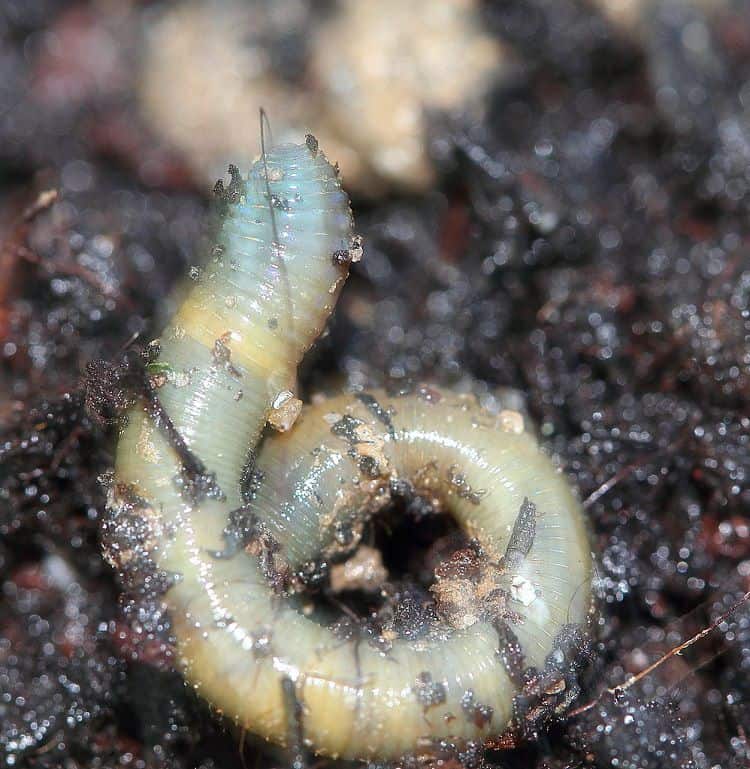Table of Contents
Worms might not make for the most exciting pets in the world, but for some, these creatures are fascinating and the most perfect pet they could have. And these individuals know that when kept in a worm habitat, these creatures will thrive and live for quite a long time. There are times, though, when the conditions in which worms are kept can become detrimental to their health and wellbeing. It is important therefore to be aware of what to look out for when trying to determine whether your worms are healthy or not.
Worms that are healthy will be eating regularly, pooping, and digging. You should be able to see signs that they are growing and that their food is disappearing from the surface within a few days. If the food that you are providing is not showing any signs of being eaten, or if you notice a bad smell emanating from the worm habitat, then the chances are that your worms are not doing so well.
How Long Can Worms Live?
In the wild, worms naturally live for between one and two years. We say ‘naturally’ because worms are a nutritious food source for many different types of predator including birds, hedgehogs , moles, foxes, snakes, beetles, slugs, and lizards (just to name a few). Consequently, a worm’s chances of living a natural lifespan – indeed, the chances of survival – are not great in the wild. Nevertheless, in captivity, these creatures can actually live for much longer. In fact, some worms can live for up to ten years in a healthy wormery.
, moles, foxes, snakes, beetles, slugs, and lizards (just to name a few). Consequently, a worm’s chances of living a natural lifespan – indeed, the chances of survival – are not great in the wild. Nevertheless, in captivity, these creatures can actually live for much longer. In fact, some worms can live for up to ten years in a healthy wormery.
How to Tell if a Worm is Dying
Worms can die if they become sick or dehydrated. Something that you can look for in dying worms is signs of rigor mortis. Before you question the previous sentence, know that unlike in humans where rigor mortis occurs after death, a study by scientists at University College London and Washington University found that in worms this happens before they actually die [source ].
].
The scientists found that rigor mortis begins in worms while they are still alive (albeit in the early stages of dying). This is something that normally tends to occur when worms start to die of old age. When illness or dehydration is the cause though, the signs may be somewhat different.
A worm’s mass is made up of 85% water, so keeping them in a tank that is too dry can obviously cause problems. If your worms look dry, they are likely dehydrated, so action is required asap. A healthy worm should have skin that glistens.
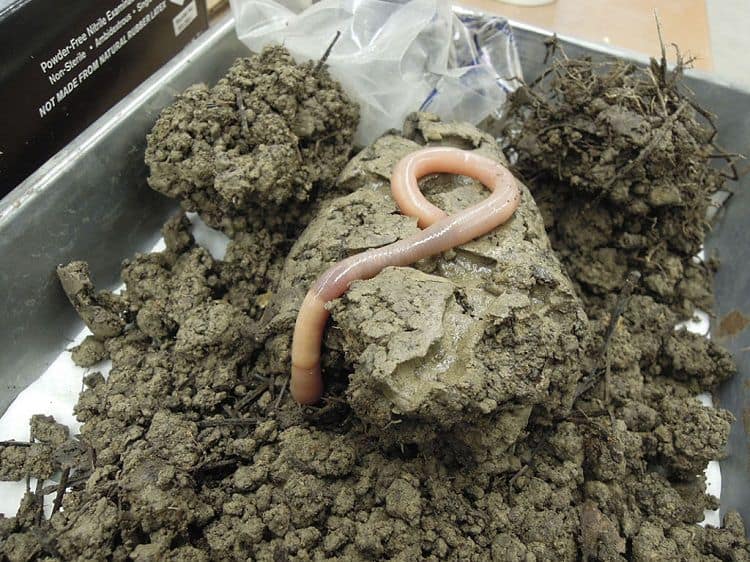
Giant Palouse Earthworm 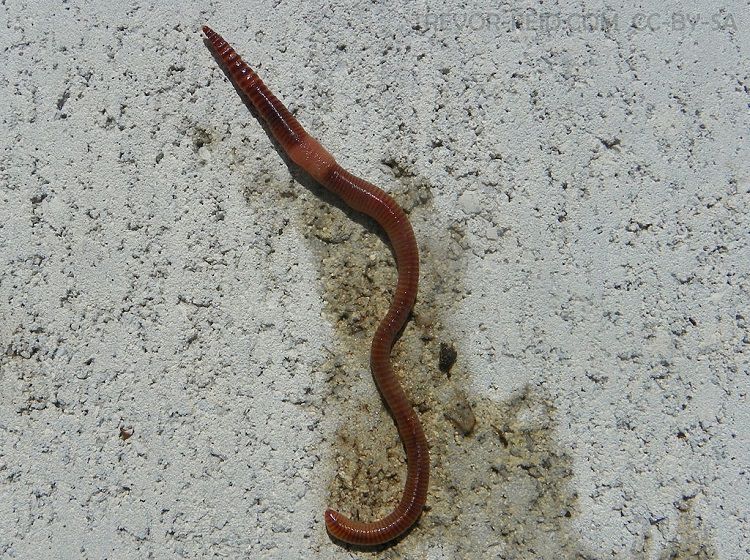
European Nightcrawler 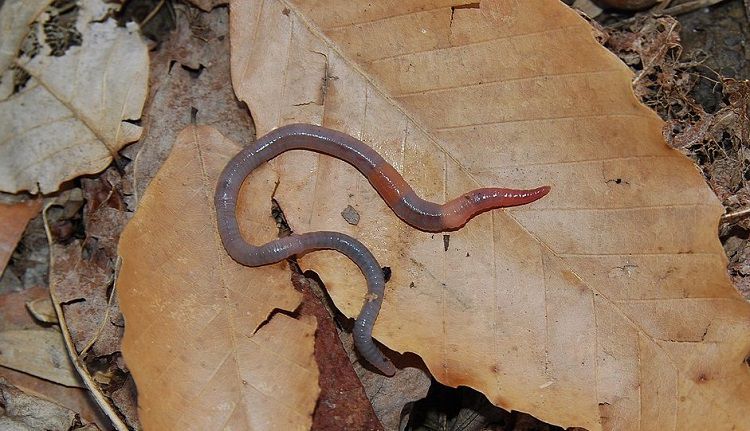
Aporrectodea caliginosa
Why Are My Worms Dying?
If your worms keep dying, there might be a simple, rectifiable reason for this. Worms thrive in the right conditions, so the first thing to do is check the habitat.
For example, a lack of oxygen can be a common cause of worm death, but this should not be an issue if you are keeping the worms in a well-ventilated tank.
Another thing to check is moisture levels in the tank. Although worms thrive in moist conditions, there is such a thing as ‘too moist.’ If you are regularly watering the soil, you need to also be aware that the food worms eat also tends to contain a lot of moisture. Fruits and vegetables have high water contents and will be adding to the moisture levels.
On the flip side, your worms might be dying from a container that is not moist enough. You need to ensure that the soil the worms are living in is moist but not wet. Spray the soil without saturating it. As a general guide, it is better for the soil to be a little bit too wet rather than being too dry. However, ‘a little bit’ means just that.
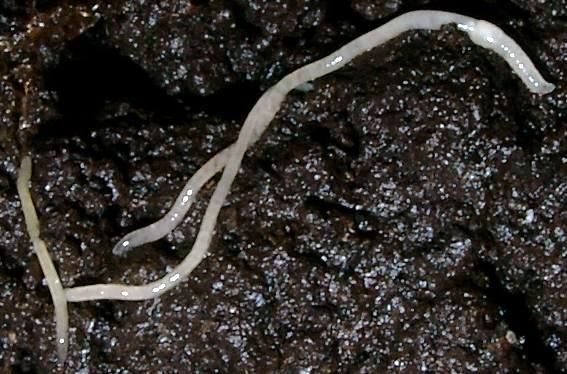
Something that many worm owners do not realize is that worms can often become sick because of their bedding material. Worms do actually feed on this, so using the right type is vital to their wellbeing.
on this, so using the right type is vital to their wellbeing.
Although shredded paper and cardboard are good choices when choosing a bedding material, it is important to avoid glossy type paper found in magazines or cardboard that has been coated with a shiny material as these can contain chemicals that can be harmful to the worms. You could instead use shredded newspaper, or even paper towels.
In summary then, to keep your worms healthy, remember that they need their soil to be moist but not soaking, they need to have good quality bedding, and ensure that they are in moderate temperatures. Also be sure to provide good quality food for the worms to help ensure they stay healthy.
Photo Credits:
- Featured Image (Allolobophora chlorotica HC2): Holger Casselmann
 – This file is licensed under the Creative Commons
– This file is licensed under the Creative Commons Attribution-Share Alike 3.0 Unported
Attribution-Share Alike 3.0 Unported license.
license. - Giant Palouse Earthworm
 : Chris Baugher
: Chris Baugher – This file is licensed under the Creative Commons
– This file is licensed under the Creative Commons Attribution-Share Alike 2.0 Unported
Attribution-Share Alike 2.0 Unported license.
license. - European Nightcrawler: Trevor Reid – This file is licensed under the Creative Commons
 Attribution-Share Alike 4.0 International
Attribution-Share Alike 4.0 International license.
license. - Aporrectodea caliginosa: Smithsonian Environmental Research Center
 – This file is licensed under the Creative Commons
– This file is licensed under the Creative Commons Attribution 2.0 Generic license.
Attribution 2.0 Generic license. - Enchytraeus albidus: Paul Bachhausen – This file is licensed under the Creative Commons
 Attribution-Share Alike 3.0 Germany
Attribution-Share Alike 3.0 Germany license.
license.

